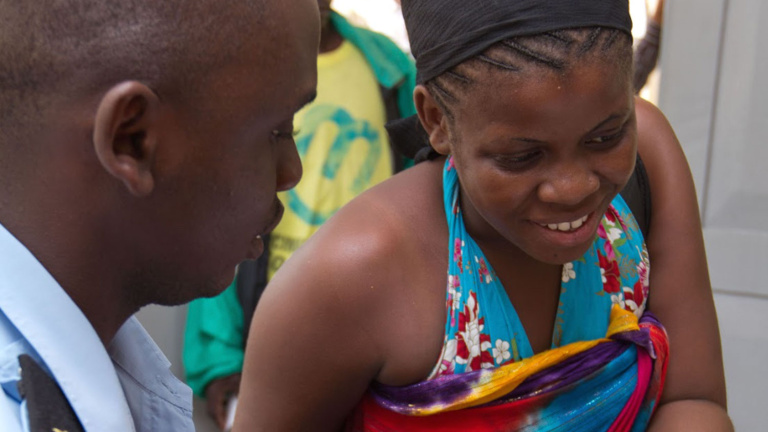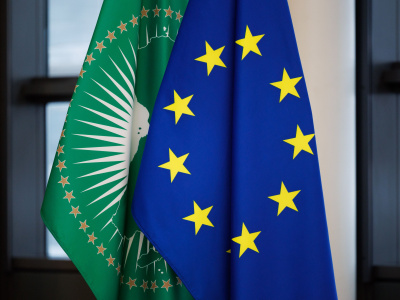
The AU-EU Summit, migration, mobility and youth
The way migration and mobility will be managed politically and accommodated economically will be a defining factor for the future of Africa and of Europe. This article looks at the AU-EU Summit held in November 2017.
“…migration can only be managed effectively through cooperation and partnership. There are forces all around the world pushing for a totally different approach: an approach based on confrontation instead of cooperation; on building walls instead of building partnerships. On closures and bans rather than dialogue. This is not the European way and I believe this is not the African way.” (Federica Mogherini, EU High Representative/Vice President of the European Commission, Valletta Senior Officials Meeting, 2017).
When approaching migration and mobility the challenge is broad and calls for comprehensive responses that will enable saving lives, fighting criminal networks as well as creating 18 million new jobs every year to absorb new labour market entrants in Africa. It is about continuing to strike the right balance between long and short term policies and instruments. And it is, obviously, also about the importance of youth when defining the future migration and mobility policies of Europe and Africa.
European and African leaders are very conscious that their response to the challenges of migration and youth unemployment may well define their legacy and the future of their own country. They, therefore, engaged closely in the AU-EU Summit in Abidjan and worked hard to iron out the differences of approach that inevitably exist.
#AUEU #AUEUyouth #BeTheFutureToday
The AU-EU Abidjan Political Declaration shapes a political agenda committing to the jointly defined main theme of the Summit: “Investing in Youth for Accelerated Inclusive Growth and Sustainable Development”. As youth represents the main group of individuals migrating, this is a very pertinent agenda, not only for the future – but starting right now.
Three overall deliverables of the AU-EU Summit are crucial for migration and mobility and for our work ahead.
Firstly, the Summit Declaration consolidates the focus on youth and reflects that a broad-based and balanced approach to migration and mobility is the right approach – also when working towards the UN Global Compacts on Migration and Refugees. The Declaration obviously pays special attention to the involvement of young migrants in all our efforts. It stresses the political commitment to address root causes of irregular migration. The need to prevent hazardous journeys and save lives. It emphasises that more needs to be done to further develop pathways for regular migration. Agrees to give preference to voluntary return and reaffirms that all returns must be carried out in full respect for human rights and human dignity. Finally, the Declaration restates a shared commitment to provide assistance to people fleeing conflict, including Internally Displaced People (IDPs), and support to the African Institute for Remittances.
Secondly, the Declaration commits to deepening the partnership and dialogue on migration and mobility by developing a joint framework for a strengthened continental dialogue between the EU and the AU. This is important as it is foreseen to complement the existing and more regionally specialised dialogues, including the Joint Valletta Action Plan, Rabat and Khartoum Processes, and the AU Horn of Africa Initiative on Human Trafficking and Smuggling of Migrants.
Thirdly, the Summit provided a framework for ground breaking cooperation between AU, UN, EU, the Libyan government, and countries of origin and transit to take the necessary means and actions to improve the conditions for migrants and refugees in Libya. The cooperation is showing immediate results, assisting thousands of migrants out of Libya and back to their countries of origin. A task force has been established to oversee the ongoing repatriation out of Libya. The return of hundreds of Nigerian migrants already in January demonstrate that this commitment is not mere words.
Valletta and the EU Partnership Framework
The Declaration in Abidjan built on the approach agreed at the EU-Africa Summit on Migration in Valletta in November 2015. This identified five essential pillars for a balanced approach to migration: (1) Support to development benefits of migration and addressing root causes of irregular migration and forced displacement, (2) Legal migration and mobility, (3) Protection and asylum, (4) Prevention of and fight against irregular migration, migrant smuggling and human trafficking, and (5) Return, readmission and reintegration.
The EU Partnership Framework approach agreed in 2016 builds on these five pillars, and is implemented in close partnership between the EU, its member states and specific African Union member states. In West Africa and the Sahel, work underway targets the creation of 114,000 jobs and supports 10,000 micro, small and medium enterprises. In Niger, the fight against smuggling along one of the main routes towards Libya has been stepped up by the government. The fight includes strengthening of the legal framework, and law enforcement. In the Horn of Africa, EU-financed projects under way will create more than 44,000 jobs across Ethiopia, Kenya and Somalia, and directly finance a further 30,000 jobs in South Sudan.
The main lesson learned from working with the Valletta Political Declaration and Action Plan, as well as the EU Partnership Framework approach, is that maintaining the broad-based approach envisaged under the five Valletta pillars is fundamental – and this includes making full use of the entire range of instruments. The common and comprehensive approach has also underlined that success lies in maintaining the momentum of action on all fronts. Furthermore, the incremental challenges call for a common approach, by pooling of resources and coordinated work towards joint objectives – with EU member states, as well as with external partners including the UN, the AU and its member states. Finally, experiences show the importance of integrating migration and mobility issues as part of the EU policies towards third countries. Placing diplomacy at the heart of the efforts in terms of political analysis and building platforms for dialogue helps to solve some of the difficult issues that need complex solutions.
Continuing to get the balance right
It is important to say that there have been differences. The final negotiations of the Valletta Summit took almost 24 hours of continuous talks, and the migration paragraphs of the Abidjan Declaration were only finalised at the very last minutes of the closing ceremony. But most importantly, the approach agreed in Valletta and Abidjan put us in a position to balance the differences and to tackle the essential policy discussions of how best to continue to strike the right balance between short term immediate responses to crisis situations and longer term investments in jobs and economic development on the African continent. Knowing what we know about the conditions in many of the countries of origin on the African continent, the same individuals who are involved in criminal activities related to migration and mobility would in most cases prefer a job in the formal sector, if they were given the choice. It is obviously not an either/or, it is all about continuing to get this particular balance right in our policy approaches and concrete instruments.
The future policy responses to migration and mobility will continuously have to pass the litmus test of providing a short term response to saving lives, tackling the fight against irregular and illegal networks, while ensuring that the migration and mobility within and between Europe and Africa make the most of the economic and wider political potential of an orderly migration policy. The way these challenges will be managed politically and accommodated economically will help define the future of both Africa and of Europe. And it will impact more than anyone on the youth in both continents, so it is essential their voice is included in both our upstream dialogues and downstream initiatives.
The statement by the European leaders on the occasion of the International Migrant Day last December underlined the broader political and economic importance of migration and mobility for Europe itself over the last centuries:
“On International Migrant Day we remember all those who live outside their country of birth and are on the move – either by choice or forcibly. We remember that our continent, Europe, is built on migration. Our common history is marked by millions of people fleeing from persecution, war, or dictatorship (…). Today, our European Union allows people across the continent to freely travel, to study and work in other countries. This has made Europe one of the richest places in the world – in terms of culture, of economy, of opportunities and in terms of liberties.”
About the author
Birgitte Markussen (@BNMarkussen) is Director and Deputy Managing Director for Africa, European External Action Service, Brussels. Ms. Markussen was negotiator of the migration, mobility and youth issues during the AU-EU Summit in November 2017, penholder on the compacts under the EU Partnership Framework approach since 2016, and closely involved in the Valletta Political Declaration and Action Plan in 2015.
Read the full magazine issue







